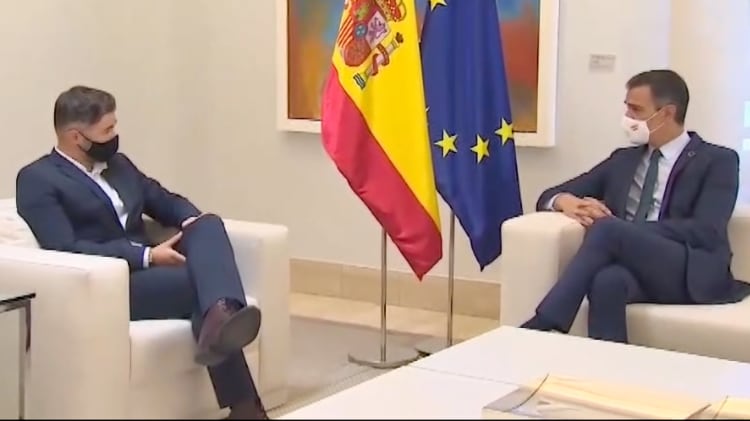Ángel Collado
The Government is beginning to recognise the depth of the looming economic crisis, but prioritises its commitments with the pro-independence supporters over any agreement with the social partners or the opposition to curb inflation, contain the public deficit or lower taxes.
After the black week in which he saved another decree in Congress by the skin of his teeth and had to admit to the EU that the Spanish economy was slowing down, Pedro Sánchez reaffirmed his principles: no reforms, living with internal dissidence in the cabinet and regaining the favour of his Catalan pro-independence allies.
Between March and April, the social-communist government went from selling the public an economic recovery that it took for granted and promised would be “fair”, to writing to Brussels that this recovery does not exist and has been postponed for another year, to the first quarter of 2023.
The invasion of Ukraine by Putin’s troops serves the government to disguise the change in official forecasts that no international organisation or national institution (from the IMF to the Bank of Spain) had believed: that Spain’s Gross Domestic Product was going to grow by up to 7 percent. It now stands at 4.3 per cent. Government propaganda insists on focusing on Russian aggression as the origin of all the imbalances in the national economy, although inflation had been soaring since last autumn and reached over 7 percent before the invasion of Ukraine.
The government also suddenly acknowledged that Spain is facing the economic consequences of the war with an accumulated backlog, the result of the consequences of the pandemic. The main EU countries recovered their previous GDP levels by the end of 2021, a year and a half earlier than now foreseen for the national level.
The sincerity required in the plans for Brussels was compounded by the latest official data provided by the National Institute of Statistics (INE), which put the growth rate for the first quarter of the year at a meagre 0.3 per cent.
Faced with this panorama of economic deterioration, the Popular Party cannot quite believe how Sánchez has been able to discard the thread of understanding left by the 40-page document of proposals on the matter sent by Alberto Núñez Feijóo to Pedro Sánchez. No tax cuts, no help lines, no bureaucratic adjustments or savings measures in the administration. The government does not want to talk about the economy with the opposition, only about the appointments pending in the General Council of the Judiciary for the last three years.
The chief executive confirmed last week that he entrusts the future of the cabinet to strict compliance with his pacts with the far left and the pro-independence supporters (more public spending and more power for the separatists) and rules out any state agreement to tackle an economic crisis that threatens a new recession.
For the moment, Sánchez prefers to focus on rebuilding his conglomerate of parliamentary support, which has been broken on the ERC side by the Pegasus affair over the National Intelligence Centre’s spying on Catalan secessionist leaders. He has already admitted the campaign by Podemos and the nationalists against his defence minister, Margarita Robles, in order to please all his partners who, having grown up, are calling for his head.
The president of the government needs their votes to pass the pending laws and decrees to come if he wants to keep the legislature alive. He follows the particular game he plays with his allies: they always threaten a rupture that never comes because they need each other to stay in power.
Sánchez may have until the summer to continue with his back to economic reforms, but no more. In July he expects to receive the second payment of 12 billion in European recovery aid and, at the same time, the European Central Bank will stop buying public debt. Spain is in the worst position to go to the markets, with debt soaring towards 1.5 trillion euros, which is already 110 per cent of GDP.
Sánchez will then have to explain how he will pay for the promised increase (and by law) in pensions to compensate for the rise in inflation or what he will do with the salaries of civil servants, the first to be threatened with cuts.







